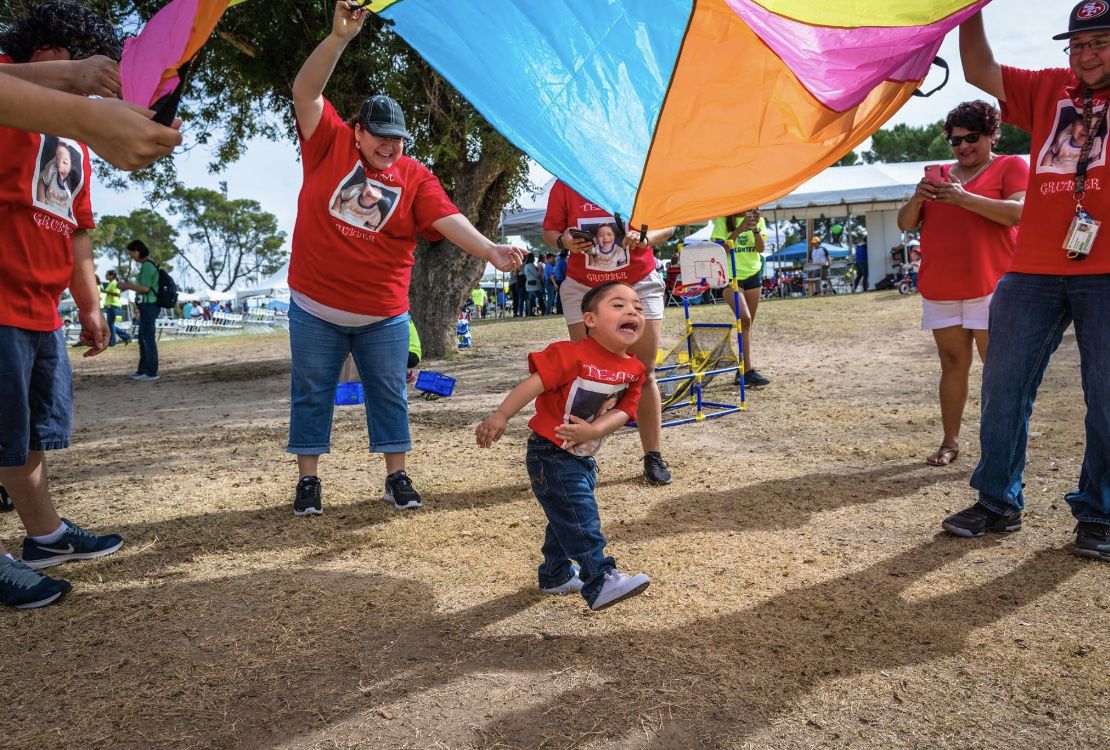It’s harvest time, and local nonprofits are hoping to gather goodwill — and collect needed funds during the process — with outdoor fall events.
Festivities will kick off next month with the 15th Annual Take a Hike for Bag It at 7:30 a.m. on Sunday, Nov. 4.
The traditional hike has been revamped this year, with a new format in a new location: After 14 years at Ventana Canyon, it will move northwest to Catalina State Park.
“Guests will have a 2½-hour window to hike; they can choose hikes or walks at different trailheads near the Gila Monster Ramada where we will be set up,” said Lisa Terrazas, volunteer and event coordinator for Bag It. “I think being outside for the hike and carrying that through to the brunch and other activities will be exciting. It should be a great day for our guests, all in all.”
Bag It is a homegrown organization named for the free canvas tote it offers newly diagnosed patients to help “fight the fear of cancer” by educating, empowering and supporting patients and their families.
“This fundraiser is so unique: It is really something different. We get hikers and walkers who love being outdoors, and one thing I love about it is that it is very casual. People can wear shorts and T-shirts and it is just very relaxing,” said Sandra Valenzuela, a volunteer since the hike’s inception.
“Cancer has affected all of us, whether through a family member, friend or co-worker, and to know that everyone is there to support this wonderful organization that helps people through that journey just makes it a really special atmosphere,” she said.
Valenzuela has personal experience with the Bag It product: Her mother used it 14 years ago when she was diagnosed with breast cancer. Since then, more than 75,000 bags have been distributed statewide; last year alone almost 4,000 bags went out through clinics, hospitals and physicians.
“My mother received one of the original bags,” Valenzuela said. “It was so helpful not only to her, but to me, my dad and the rest of my family. ... One of the books offered advice about what to eat and what not to eat during chemo, and I didn’t realize that lots of times you have a metal taste in your mouth during treatment.
“All the information about questions to ask your doctor and taking the notebook with you really helped out and kept us organized during her diagnosis and treatment.”
The bags are updated every two years; the latest version may debut at the upcoming hike. The contents went digital two years ago with a USB wristband — a bracelet that contains a USB flash drive with four gigabytes of storage — but still revolve around the signature tabulated binder in which to organize lab and test results, insurance papers and other medical records. The new bag will also provide new material from the National Cancer Institute including “Taking Time,” which addresses emotional health and living to the fullest each day, and “Heal Well,” which offers tips on eating and physical activity during treatment.
Tucson Buddy Walk
Assisting families in building a network as they embark on a new health journey is an important objective of the Tucson Buddy Walk to benefit the Southern Arizona Network for Down Syndrome (SANDS), Nov. 4 at Reid Park.
“SANDS is a great help in providing connections and friendships and a sense of community: It is a phenomenal source of support in addition to helping with technical information on resources, therapies, education plans and other areas,” said Chelsea Hansen, co-chair of the walk and vice president of SANDS.
Hansen’s daughter, Rebekah, 9, has Down syndrome, recognized by the National Institutes of Health as the most common genetic chromosomal disorder. The condition varies among individuals, resulting in lifelong intellectual disability and development delays. Heart and gastrointestinal disorders and other medical problems are also common.
Rebekah had no prenatal diagnosis for Down syndrome, and with no family history of genetic disorders, Hansen, who was 23 when Rebekah was born, said, “It wasn’t even on our radar.” Although Rebekah had no conditions that required surgery, at 6 months of age she was diagnosed with infantile spasms, a seizure disorder for which she has since received successful treatment.
With Rebekah medically stabilized, Hansen reached out to SANDS about five years ago.
“I want to be here for others to help support them along the path, since it can be an emotional roller coaster,” Hansen said. “I don’t want people to feel alone, and want them to realize that sometimes medical professionals don’t present information in the most positive way.”
The all-volunteer nonprofit provides advocacy, education and support services — including connections to resources such as speech, physical and occupational therapies and medical specialists — for people with Down syndrome and their families. Additionally, the SANDS Give It Back program offers sponsorship and reimbursement for a variety of activities, medical and technical equipment, programs and services that enhance quality of life. Finally, SANDS offers education and training for parents, medical and educational professionals and others in the community.
“There is so much more support than there ever used to be and so many advancements in prolonging the lives of those with Down syndrome. Their quality of life has changed immensely: They are going to college, working and leading fulfilling lives,” Hansen said. “That is not something you think of right away when you get the diagnosis, but the potential is there and we have to foster it and help it grow,” Hansen said.





